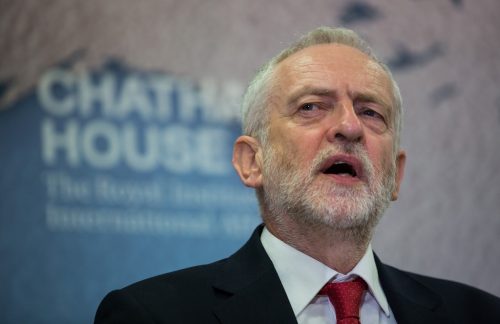
Labour has announced a new policy to fund free bus travel for under 25 year olds across the UK.
It claimed the move could benefit up to 13 million young people help them save ‘up to £1,000 a year.’ It said the measure would be paid for using money ring-fenced from Vehicle Excise Duty.
The subsidised travel would only be provided to local authorities who introduce bus franchising or move to public ownership of their local bus services.
Labour is aiming to incentivise local authorities to create municipally-owned bus companies, which it claims would be ‘run for passengers not profit.’
It also claims that research has found these measures could achieve annual savings of £276m per year.
Jeremy Corbyn MP, Leader of the Labour Party, said: “Young people deserve a break. Nearly eight years of Tory austerity have hit their incomes, their chance to buy a house and their career opportunities.
“Labour wants to help young people make the most out of life by investing in them, which is why today we are pledging the next Labour government will provide the funds to cover free bus travel for under 25s, to support them to travel to work, to study and to visit friends.
“On average, children, young people and households with children each have less disposable income than working age households without children. Young people also tend to be in lower paid, more insecure work, and they spend a higher proportion of their income on travel. Giving them free bus travel will make a huge difference to their lives.”
Andy McDonald MP, Shadow Transport Secretary, added: “Buses are vital for easing road congestion and air pollution, but for too long, private bus companies have run our services for profit not people. The public purse already pays 42% of the costs of providing local bus services, but deregulated private companies choose to run only the profitable services and leave councils to plug the gaps.
“That’s why we’ll encourage local authorities to take back control of their buses so they can provide a better and more sustainable service to young and old alike, wherever they live.”
Simon Posner, CEO of the Confederation of Passenger Transport UK (CPT), said: “CPT remains convinced that bus passengers are best served by the deregulated market which has stemmed the decline in patronage (passenger numbers) and given bus operators the flexibility to respond to passenger needs and aspirations, developing their services accordingly.
“The bus industry is already delivering a wide range of youth and discounted fares to young people right across the country and these are being provided on a purely commercial basis with no additional pressure on the public purse. We believe a franchised bus market affording free bus travel to under 25s is both outdated and unsustainable, and will only add to the increasing demand on cash-strapped local authority budgets.
“Where bus operators and local authorities are working together in partnership, real benefits for all bus users, especially our younger travellers – the bus passenger of tomorrow – can be achieved. In many towns and cities right across the country, partnership working has seen passenger numbers rise while fares have remained affordable.
“In the latest Transport Focus Bus Passenger Satisfaction Survey – which sought the views of 48,000 bus passengers – passengers gave their bus services an average satisfaction score of 88%. This is an extraordinary result that many industries can only aspire to achieve. This is yet further evidence that the current regulatory regime is ‘fit for purpose’ and that the further threat of local bus franchising – which could see operators lose their businesses – will do nothing but create uncertainty and market instability.”
Stephen Joseph, Chief Executive of Campaign for Better Transport, said: “We support concessionary travel for young people, but it should be universal – not linked to governance change. Funding that is tied to buses is essential, but all local authorities should receive it and be free to spend it using the powers of the Bus Services Act appropriate to their areas.
“What is most desperately needed is a long-term coach and bus investment strategy setting out a comprehensive programme of investment and infrastructure improvement. Such a strategy already exists for rail, roads, walking and cycling; why should buses be the poor relation?”

